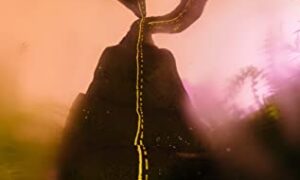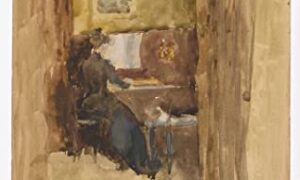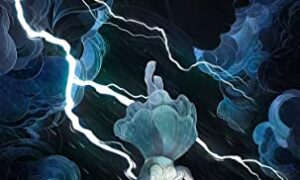 Exit Kingdom by Joshua Gaylord
Exit Kingdom by Joshua Gaylord
My rating: 5/5 cats





my god, i loved this.
i loved every single moment of it.
ceridwen has written a great review for this, naturally, and she was amazing enough to send me her copy. i am sad she didn’t love it as much as i did, but she’s got zombie standards, and for me, i was just so grateful to get this book, I can only echo her plea:
America, why you no publish Exit Kingdom?
this book is another zombie-but-not-zombie book. this is more like a survival story, or a quest story in a world in which there happen to also be zombies. the zombies are not the focus, not by a long shot. these zombies are more like background noise; most of them are too slow to be a real threat, and the story takes place in the foreground of a ruined world where it is a struggle to trust, to protect, to exist.
it takes the shape of a traditional literary western; a man (nearly) alone in a ruined land, short on words, but long on contemplation. it is no accident that bell references cormac mccarthy, william faulkner, daniel woodrell, and tom franklin in his author exit interview.
There is not a person in sight, living or dead. Sometimes it can be this way—just quiet and still. The sound of a breeze through the high grasses, the creak of an unoiled barn door, the sandy brush of dust blown across an abandoned macadam road. Sometimes there is nothing for miles and miles around to remind you of the way things used to be. The world is so big—the amount of empty space is deafening. Who could of learned to live on this vast and poisonous air? What kind of man?
To end up at this place. Moses has gone wrong somewhere.
moses is his brother abraham’s keeper. fifteen years separate them and only one parent connects them. abraham was so young when the zombies happened, he doesn’t remember what the world was like before. he had a rough childhood, shuttled between foster homes, and he has developed into someone with bad habits and inclinations, and moses looks out for him, while he protects others from him.
on their travels, they meet a woman who is impervious to zombies. not impervious, exactly, but someone the zombies do not approach. to them, she might as well not be there at all. she has escaped from carnies to live among the ultra-religious, who now want to send her away to a safe place, to figure her out, where her former captors cannot find her. so now moses has two purposes.
the vestal, as she is known at the beginning of the book, is a very changeable person. she is slippery with her past and with her beliefs, both fragile and tough. and moses has to help her travel safely, and protect her from his brother.
this scene, and the scenes which connect to it, are probably my favorite in the book, just after the vestal discovers a snow-buried pond.
They can see the place where the Vestal slipped, the snow has been dusted away from the surface of the ice, leaving a clear patch.
Look, she says and points. Slug under glass.
They gather around the cleared patch and look down. The ice is clear, and caught under it, like some kind of horrible fish in an aquarium, is the face of a dead man gazing up at them. His body has gone soft and bloated from being underwater for so long, his eyes milky, his flesh gone pale, nibbled at by fishes, his skin peeled off and floating around him like a nest of seaweed. They could have thought him just straight dead if it weren’t for the fact that his eyes are blinking up at them sluggishly. As they watch, the dead man raises a hand to them, his movements slow, made almost ghostly by the freezing water in which he is entombed. He places his palm against the undersurface of the ice.
Moses knows it to be a grasp of hunger, but because the dead man doesn’t seem to be able to bend his stiffened fingers, the outspread palm looks like a gesture of greeting or welcome. The eyes continue to blink, slowly.
It is pathetic and awful, the slug trapped underwater and undrownable—like a man staring up
at them from the very mouth of the void, waving his goodbyes as he descends, floating down peaceful into the great black.
There is a darkness to nature—the unhurried ways of birth and death.
this zombie in the ice becomes symbolic to moses, and a pivotal, title-generating conversation occurs over him on the following night as he gapes blankly up at moses and the vestal. and, of course, in this world, nothing goes as we plan or expect. do yourself a favor and don’t click on this spoiler-quote unless you have already read this or have no intention to ever read this because your eyes have just fallen out (which is really the only reason why i could see you not wanting to read this book, because i doubt an audio version is forthcoming), or if you have the memory of a babyfish.
View Spoiler »such a beautifully written, frustrating scene. overall, the zombies in this book are just…sad. a different zombie, here:
The dead man reaches for Moses, opening his mouth. There is no smell to him, dried up and frozen as he is, and Moses can see the shrivelled tongue in the well of his mouth, the cracked grey palate, the teeth turned to chalky stone.
The arms grasp for him, but Moses gets to the man’s side and reaches one arm around the back of his torso to keep the arms lowered. It is a gentle gesture, almost like a brother’s embrace. The dead man looks confused. He tried to rotate his head to a position where he might get a bite out of Moses, but the neck doesn’t allow such range.
Be still now, Moses says quietly.
Then he takes the knife in his free hand, unfolds it, and raises it in front of the dead man’s face.
Close your eyes, Moses says to him. It is tender, the process, like a surgery or a baptism or a sudden kindness. Close your eyes now, he says.
He raises the knife to within an inch of one of the eyes, and the dead man instinctively closes them. He is peaceful now, his mouth still open but more by muscle slack than appetite. And then, with quick precision, Moses thrusts the knife deep into the man’s eye socket. A little dribble of fluid, neither pus nor blood, spills from the burst orb of the eyeball—and then the man’s whole body goes limp.
i love the unexpected tenderness. i love the whole tone of the novel—it soothed me, if that makes any sense, the way moses soothed that zombie.
i wish i hadn’t read The Reapers Are the Angels so long ago, because the parts i really remember from that book are not the moses parts, and while i can remember bits of his story here and there, there are a couple of things i wish i could remember with more clarity. this book straddles reapers. the action takes place before moses and abraham met temple, but he is telling the story at a point in time after she has had her effect upon them. so there is a bit of both at work here.
and i just can’t stop quoting.
There is arbitrary death by nature, which Moses recognizes is everyone’s equally shared hazard. And then there is arbitrary death by the foolishness of man. And this is something Moses cannot stomach.
i found it really difficult to write this review, because i liked the book so much, but it is a gut-like, where everything in the book just feels right to me. so it’s hard to share that liking with you. but i tried. oh, and i have to say: fantastic battle scene. really. really great.
When everything is still once more, Moses releases his grip on the wheel and checks himself for broken bones. There is blood all over his face and hands, but he does not know who it belongs to. Some of it could be his—but the ownership of blood is a sucker’s guess in such a sanguine world.
amen, brother…
for ceridwen, who did not read the afterword, i add this excerpt from the author interview:
Had you always planned to write a prequel to The Reapers Are the Angels?
No. Reapers was meant to be a stand-alone book. But, after I had spent some time away from it, I discovered I had a little more to say about that world. Also, I was intrigued by the idea of approaching the same landscape from a different perspective – taking a secondary character from Reapers and turning him into the primary character of Exit Kingdom. If I were to write a third book, I think I would do the same – maybe telling the story from the Vestal’s perspective.
Do you miss Temple, the protagonist from The Reapers Are the Angels?
Definitely. But I don’t believe in returning to a character or place or story just because I liked it a lot the first time around. I would imagine it’s difficult for writers to do a book series without it becoming a dog and pony show, without falling back on old tricks. I would be afraid of attenuating Temple. Sometimes the best way you show respect for a character is to leave her alone.
CERIDWEN, MAYBE YOU WILL GET A BOOK ABOUT YOUR BELOVED VESTAL AFTER ALL!! but everything else makes sense, to me. i just wish he would write faster. and write what i want. all the time.
read my book reviews on goodreads







